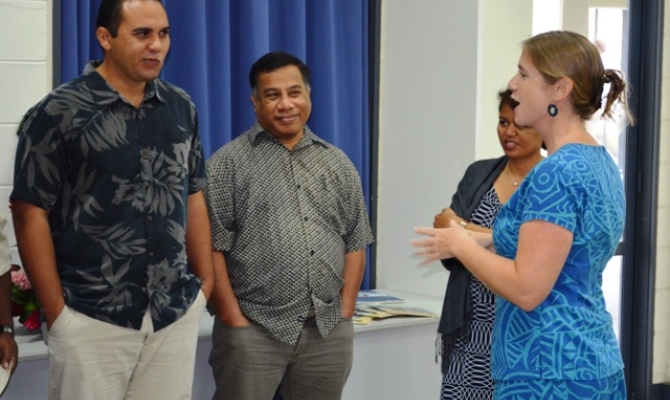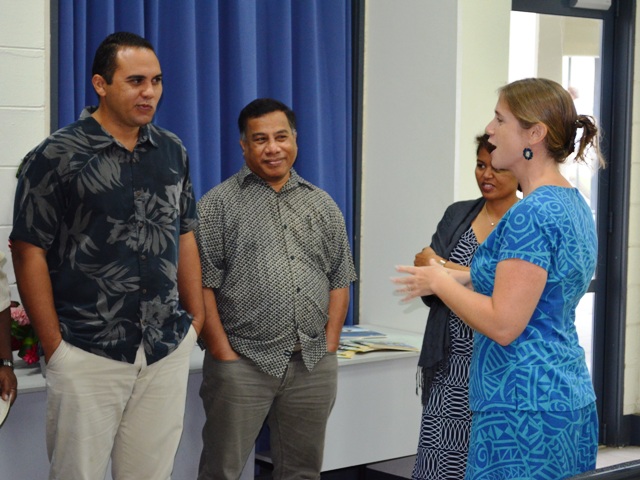
Climate Change Resilience
 Photo: CBA workshop for coordinators of the Pacific Adaptation to Climate Change Project in October 2012. Government officers in Kiribati also underwent similar training in January.
Photo: CBA workshop for coordinators of the Pacific Adaptation to Climate Change Project in October 2012. Government officers in Kiribati also underwent similar training in January. Tuesday 29 January 2012, Secretariat of the Pacific Community (SPC) news release, Tarawa, Kiribati -
“Cost benefit analysis is essential to make sure we do not waste government and donors' money,” - Mr Terieta Mwemwenikeaki, Deputy Secretary of Office of the President at a national workshop.
The workshop intended to guide government officers in how to do and use cost benefit analysis (CBA) in projects affected by climate change was delivered by the Secretariat of the Pacific Community, Secretariat of the Pacific Regional Environment Programme and GIZ.
"This was originally requested by Fisheries to help guide which projects they should support," observed Mr Mwemwenikeaki.
"However, this tool is useful to provide an evidence base to make the most of all our policies and projects."
"However, this tool is useful to provide an evidence base to make the most of all our policies and projects."
Mrs Kurinati Robuti from the office of National Economic Planning Office (NEPO) said, "NEPO is supposed to carry out a detailed CBA where necessary but often this does not happen since we have limited know-how about to undertake this. We are grateful for this initiative."
Marita Manley, Technical Adviser, Climate Change (GIZ) said staff that attended the workshop have been very enthusiastic.
"The Government of Kiribati already has a national project appraisal template with a section on describing the costs and benefits of projects but it faces constraints in applying it. During the training, participants have already been discussing how to apply cost benefit analysis as a framework to help improve decision making and the quality of projects."
Two cost-benefit analyses planned during the week include an assessment of alternative energy options on Kiritimati Island and fish aggregating device deployment.
Over the longer term, climate change is expected to lead to a decrease in coastal fisheries productivity but an increase in skipjack tuna in the waters around Kiribati. The deployment of near-shore fish aggregating devices (FADs) is recommended to increase access of local fishers to tuna and other oceanic fish, and assessments are needed in Kiribati to demonstrate that the benefits of FADs outweigh their costs. The training is supporting the Fisheries Department to establish monitoring plans to improve the evidence base to guide the deployment of FADs.
"We need more training in-country," said Mr Mwemwenikeaki. "this kind of national workshop is just what we need."
The workshop was held at the Kiribati Institute of Technology and ended on Tuesday 29 January.
Please contact Mr. Aaron Buncle Environmental Resource Economist at SPREP [email protected] for further details.